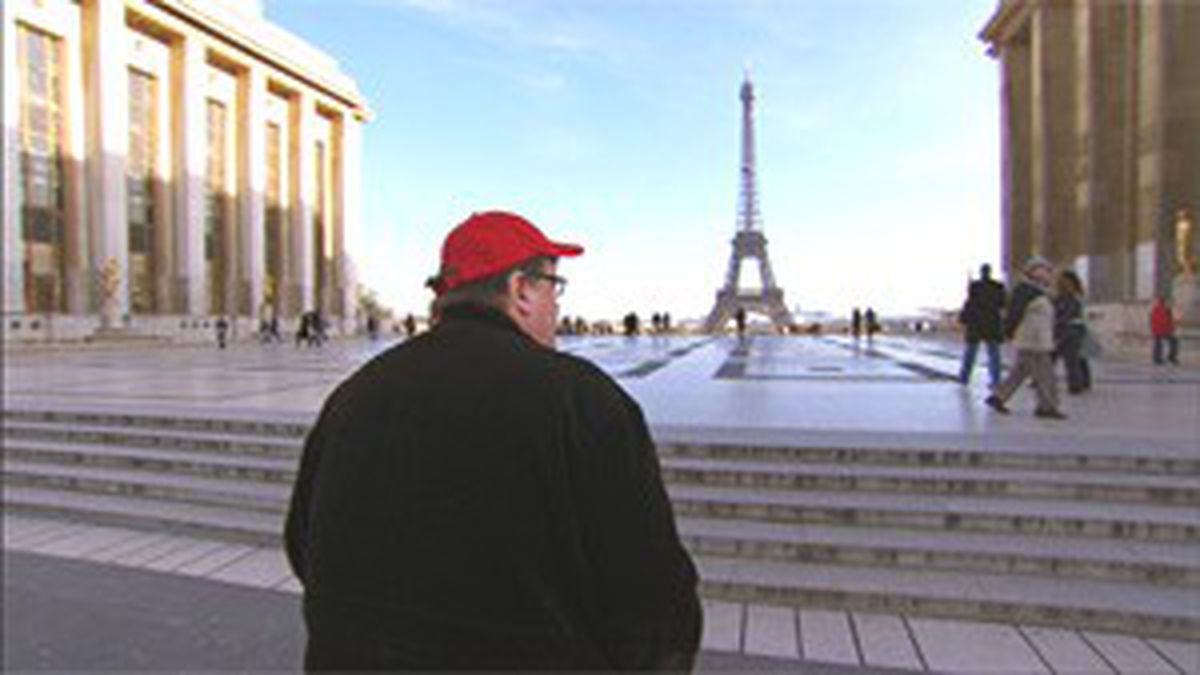It turns out Michael Moore was right all along. About General Motors in Roger & Me, about Nike in The Big One, about outsourcing jobs in his TV series The Awful Truth, and about guns and American violence in Bowling for Columbine. Also about the stolen election, the oil industry, and the “war on terror” in Fahrenheit 9/11. And he’s right about the country’s broken healthcare delivery system, the subject of his new documentary, Sicko. Of all the chubby former autoworker’s exposés of corporate avarice and heartlessness, it’s perhaps the saddest, and the ache lingers long after you leave the theater.
Moore throws out a few facts for us to chew on: There are 47 million Americans without health insurance. By US government estimates, each year 18,000 people die because they’re too poor to afford treatment. Medical bills are the number one cause of bankruptcy, and of homelessness. Insurance companies are in business to make money, and they lose money every time they pay benefits — so denial of benefits is the name of the game. After first faking us out with a Bush joke (“I couldn’t resist,” the filmmaker admitted at a San Francisco preview screening), Moore illustrates the shocking figures with up-close and personal stories of preventable deaths, uprooted families, repentant doctors and insurance executives, hospitals dumping indigent patients on the street, and other examples of lives wasted in service of the profit motive. HMOs can kill you.
Then he takes us on a magical tour of exotic lands — Britain, Canada, France — where healthcare is a basic right (not to mention childcare, education, generous vacations, etc.). Doctors and hospitals are run by the state, treatment is free, and people don’t have to worry about how they’re going to pay for their operations or pills. They also live longer than Americans. When Moore asks ordinary people in those countries about things like copays, deductibles, pre-existing conditions, and other access barriers, they give him a pitying look tinged with slight amusement, the sort of look you’d give a man who had carelessly stepped in something disgusting while wearing expensive shoes.
To drive home his point, Moore finds some volunteer rescue workers who helped clear the World Trade Center site after the 9/11 attacks. They now suffer from a variety of environmental ailments and for various reasons have been denied medical treatment by their insurers. He accompanies them and a few other sick people on a boat to Cuba, where, after trying in vain to get into the US detention center in Guantánamo (suspected terrorists, we learn, get better medical care than US citizens), they are treated for free in Cuban hospitals because, as a doctor explains, it’s their duty to heal the sick. A prescription that costs a patient $120 in the States turns out to be about five cents in a Cuban pharmacy.
Moore and the production company got into trouble with the US State Department for that Cuban interlude. The feds claim that the value added to Moore’s video footage on the trip constitutes a violation of US trade laws. Because of that and other anticipated threats, the producers of Sicko made a master print of the film and hid it away somewhere in Canada, just in case. Moore has pulled similar stunts before, such as delivering a check for one day’s maquiladora wages to a company that offshored its production. Those cheeky gags are what made Moore and his gonzo style so popular in the first place, and also angered the two most vociferous groups of Michael Moore haters: rightwing operatives, and other documentary makers. The rightists hate him for all the outdated Cold War reasons, and the equally old-fashioned documentarians, whose painstaking exposés seem a bit dry in comparison, resent his entertainment value.
But none of that matters much when we reach the heart of Sicko. It takes place in a fire station in Cuba, where the local bomberos have gathered to pay heartfelt tribute to their North American brothers, injured in the line of duty and now having had some measure of their health and dignity restored by that country’s socialized medical system. We wanted to go to New York to help you, the Cuban fire chief declares — but of course they would never have been allowed in. It’s a touching scene, perfectly illustrating the “we” approach to social policy, as opposed to the “me” so chillingly exemplified by healthcare dispensers in the United States. The Cuban firefighters provide a note of hope that somehow we, too, can find a way out of this greed pit to a place where human welfare is valued above private profit. If we’re ever able to begin that process, Sicko may be seen as just what the doctor ordered.











